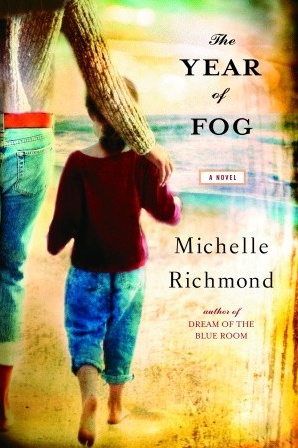

“We take pictures because we can't accept that everything passes, we can't accept that the repetition of a moment is an impossibility. We wage a monotonous war against our own impending deaths, against time that turns children into that other, lesser species: adults. We take pictures because we know we will forget. We will forget the week, the day, the hour. We will forget when we were happiest. We take pictures out of pride, a desire to have the best of ourselve preserved. We fear that we will die and others will not know we lived.”
― Michelle Richmond, quote from The Year of Fog
“...You find a way, somehow to get through the most horrible things, things you think would kill you. You find a way and you move through the days, one by one, in shock, in despair, but you move. The days pass, one after the other, and you go along with them - occasionally stunned, and not entirely relieved, to find that you are still alive.”
― Michelle Richmond, quote from The Year of Fog
“Some people have a gift for making you feel okay, just by the fact of their presence.”
― Michelle Richmond, quote from The Year of Fog
“I have a hunch that our obsession with photography arises from an unspoken pessimism; it is our nature to believe the good things will not last. . . But photos provide a false sense of security> like our flawed memory, they are guaranteed to fade. . . . We take photographs in order to remember, but it is in the nature of a photograph to forget (pg 157)”
― Michelle Richmond, quote from The Year of Fog
“As the years progress and we experience more and more, the mini-narratives that make up our lives are distorted, corrupted, so that every one of us is left with a false history, a self-created fiction about the live we have led. pg 163”
― Michelle Richmond, quote from The Year of Fog

“Tragedy, in its full and life-altering form, happened to other people.”
― Michelle Richmond, quote from The Year of Fog
“I had never really thought of children as people, just as mysterious and needy creatures on their way to something greater.”
― Michelle Richmond, quote from The Year of Fog
“56 percent of learned information is forgotten within an hour of being encoded. By the time one day has passed, another 10 percent is gone. A month after the information is learned, 80 percent of it has vanished. How”
― Michelle Richmond, quote from The Year of Fog
“men have come to such a pass that they frequently starve, not for want of necessaries, but for want of luxuries;”
― Henry David Thoreau, quote from Walden and other writings
“One of the grubby truths about a loss is that you don't just mourn the dead person, you mourn the person you got to be when the lost one was alive. This loss might even be what affects you the most.”
― Meghan O'Rourke, quote from The Long Goodbye
“I want to have hope, I can’t help it, but I’m almost afraid to,” Serafina”
― Jennifer Donnelly, quote from Rogue Wave
“My love was alive, not because I was loved, but because I myself loved!”
― Arthur Japin, quote from In Lucia's Eyes
“You convinced me that you're a good kisser, that doesn't mean you like me."
"I'm here pretending to be your boyfriend with the possibility of getting zero benefits from you. Trust me kitten, I like you. I like you a whole lottle, remember?”
― L.A. Casey, quote from Alec
BookQuoters is a community of passionate readers who enjoy sharing the most meaningful, memorable and interesting quotes from great books. As the world communicates more and more via texts, memes and sound bytes, short but profound quotes from books have become more relevant and important. For some of us a quote becomes a mantra, a goal or a philosophy by which we live. For all of us, quotes are a great way to remember a book and to carry with us the author’s best ideas.
We thoughtfully gather quotes from our favorite books, both classic and current, and choose the ones that are most thought-provoking. Each quote represents a book that is interesting, well written and has potential to enhance the reader’s life. We also accept submissions from our visitors and will select the quotes we feel are most appealing to the BookQuoters community.
Founded in 2023, BookQuoters has quickly become a large and vibrant community of people who share an affinity for books. Books are seen by some as a throwback to a previous world; conversely, gleaning the main ideas of a book via a quote or a quick summary is typical of the Information Age but is a habit disdained by some diehard readers. We feel that we have the best of both worlds at BookQuoters; we read books cover-to-cover but offer you some of the highlights. We hope you’ll join us.